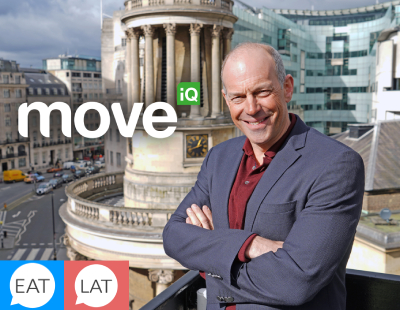“House price prospects will depend on the wider economy, around which there is a larger degree of uncertainty than usual” explains Robert Gardner, Nationwide's chief economist.
“Like most forecasters, including the Bank of England, we expect the UK economy to slow modestly next year, which is likely to result in less robust labour market conditions and modestly slower house price growth. But we continue to think a small gain (around two per cent) is more likely than a decline over 2017 as a whole” he adds.
However, his rival forecaster over at the Halifax - Martin Ellis - was a little more optimistic on prices, saying there could be anything from a one per cent to four per cent increase in 2017: but Ellis, too, anticipates a slowing market with transactions taking a hit.
“The housing market is critically dependent on how the wider economy evolves. We consider it most likely that the UK economy will soften over the course of 2017. This is most likely to result from the weakening of sterling pushing up import costs and dragging on purchasing power, both for consumers and as a determinant of business investment spending” he says.
“Slower economic growth in 2017 is likely to result in pressure on employment with a risk of a rise in unemployment. This deterioration in the labour market, together with an expected squeeze on households’ spending power – as inflation picks up and outpaces earnings growth later in the year – is likely to curb housing demand” Ellis concludes.
Transaction falls also loomed large in the forecast for 2017 from Savills.
This year's anticipated 1.245m sales will drop to 1.125m next year. Although Savills says this low point will be improved upon in later years, it also warns that even by 2021 there will be just 1.24m sales - slightly fewer than we will have seen in 2016.
First time buyers will face ongoing challenges in raising a deposit and numbers are expected to fall 15 per cent from 325,000 in 2016 to 275,000 by 2018. Tougher lending criteria will also constrain mortgaged home owners looking to trade up, while cash buyer numbers, currently 35 per cent of the market, may be discouraged by increased stamp duty.
Buy to let investors with a mortgage, some 10 per cent of the market now, will also tail off because of tax changes coming up. "Their transactions are expected to fall from 120,000 to 90,000 in 2021, and hit a low of 80,000 in 2018, suppressing levels of new private rented stock brought to the market" warns Savills.
JLL, another leading forecaster, says transaction levels in the next 12 months will fall from around 1.22m in 2016 to 1.08m; this is down to uncertainty caused by Britain's exit from the EU, and from the ongoing effects of different stamp duty reforms from late 2014 until April 2016.
The company says 2018 will be characterised by more certainty in the market as there will be greater evidence of how the EU negotiations are progressing. JLL expects prices to be broadly unspectacular, rising 0.5 per cent on average in the UK next year; prices will rise 1.0 per cent in 2018 and 2.0 per cent in 2019. The increase in 2020 will be 4.0 per cent.
The National Association of Estate Agents says that 2016 has been characterised by volatility, unpredictability, and prime central London in particular being hit by buyer-resistance to stamp duty levels.
“Next year, we expect it’ll be more of the same; there won’t be a ‘property Armageddon’, but things won’t get much better for first time buyers, and those looking to up or down-size” according to the association’s managing director Mark Hayward. He says there will be relatively little price movement for housing in 2017.
That sales torpor hitting prime London is likely to spread across the capital, warns high-end agency Knight Frank.
“The ripple of price growth from London continued in 2016 and we expect the end of year position to be that the East of England and the South East will both see stronger growth than that in Greater London” says its official forecast for 2017.
“This slowdown in the capital will likely be experienced across the rest of the country with price growth down notably on 2016 levels” it cautions.
Predictably, it says the Brexit process will impact negatively on consumer confidence in the run up to and just after invoking Article 50. The agency says the mainstream market will see only a 1.0 per cent price rise in 2017, with London actually seeing a 1.0 per cent fall.

























Join the conversation
Be the first to comment (please use the comment box below)
Please login to comment